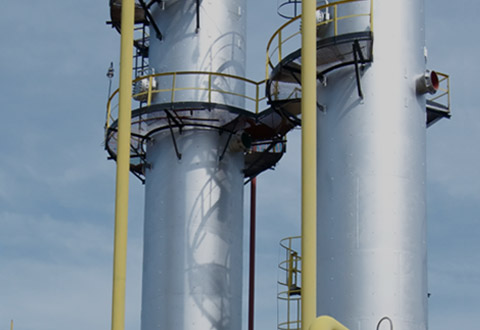
- Mobile Phone
- +8613931874955
- sales@cntcmetal.com
concrete wire mesh sizes
Understanding Concrete Wire Mesh Sizes A Comprehensive Guide
Concrete wire mesh, often known as reinforcement wire mesh or simply wire mesh, is an essential component in the construction and building industry. It plays a crucial role in providing strength and stability to concrete structures, ensuring they can withstand various stresses during their lifecycle. Choosing the right sizes of concrete wire mesh is vital for the integrity of any construction project, whether it’s a small home improvement task or a large-scale infrastructure project. In this article, we’ll explore the various sizes of concrete wire mesh available, their applications, and important considerations for selecting the appropriate type for your needs.
What is Concrete Wire Mesh?
Concrete wire mesh is made of thin steel wires that are welded together to form a grid. This grid is typically laid in the forms before concrete is poured. The primary purpose of wire mesh is to enhance the tensile strength of concrete, which is inherently strong under compression but weak under tension. The mesh helps to distribute stress throughout the concrete, reducing the likelihood of cracking and improving overall durability.
Common Sizes of Concrete Wire Mesh
Concrete wire mesh comes in various sizes and configurations, which can affect its strength and performance. The sizes are typically defined by the diameter of the wire and the spacing between the wires. Here are some of the most common sizes you might encounter
1. Wire Diameter The wire diameter is a critical factor in determining the mesh's strength. Common diameters range from 6 gauge (approximately 0.17 inches) to 12 gauge (approximately 0.09 inches). Thicker wires provide greater strength and are suited for heavy-duty applications, while thinner wires might be appropriate for lighter uses.
2. Mesh Size The mesh size refers to the distance between the wires within the grid. Common configurations include 4x4 inches, 6x6 inches, and 8x8 inches. A tighter mesh (e.g., 4x4 inches) is beneficial for situations where there may be higher stress or load, whereas a looser mesh (e.g., 8x8 inches) can be sufficient for lighter applications.
3. Sheet Dimensions Concrete wire mesh is also available in various sheet sizes. Standard sheets typically measure 5 feet by 10 feet, but they can come in other dimensions depending on the manufacturer and the project requirements. Custom sizes may also be available for specific applications.
Applications of Concrete Wire Mesh
Concrete wire mesh is used in a variety of construction projects, including
concrete wire mesh sizes

- Slabs and Floors Wire mesh is commonly used in concrete slabs for residential and commercial buildings. It helps to control cracking by providing tensile support.
- Roads and Pavements Reinforcing concrete roadways and pavements with wire mesh can enhance their load-bearing capacity and longevity
.- Walls and Foundations For basements and retaining walls, wire mesh adds structural integrity, making these elements more durable against soil pressure and water intrusion.
Factors to Consider When Choosing Wire Mesh Sizes
When selecting the appropriate size and type of concrete wire mesh for your project, consider the following
1. Load Requirements Assess the load that the concrete structure will need to support. Heavier loads might require thicker wire and tighter mesh spacing.
2. Working Environment Take into account environmental factors like moisture and temperature, which can affect the performance of the concrete and the wire mesh.
3. Cost and Availability While thicker and more tightly woven meshes provide better support, they can also be more expensive. Consider your budget and the availability of specific sizes in your area.
4. Building Codes Always ensure that your chosen mesh meets local building codes and industry standards, which can vary significantly by location.
Conclusion
Choosing the right concrete wire mesh size is vital for ensuring the longevity and durability of your concrete structures. By understanding the various types, sizes, and applications of wire mesh, you can make informed decisions that will enhance the safety and reliability of your construction projects. Always consult with professionals and suppliers to find the best options tailored to your specific needs.
share:
-
Why Sacrificial Formwork Is Redefining Underground ConstructionNewsJun.06,2025
-
The Structural Dynamics of Modern Concrete: How Snake Spacers Revolutionize Flexible ReinforcementNewsJun.06,2025
-
Snake Spacers Smart-Lock Concrete Reinforcement with Surgical PrecisionNewsJun.06,2025
-
Snake Spacers: Reinforcement Precision for Modern Concrete ProjectsNewsJun.06,2025
-
Snake Spacers Powering Concrete's Structural DNANewsJun.06,2025
-
Slither into Success: Snake Spacers' Precision Bite for Unbreakable ReinforcementNewsJun.06,2025
-
Sacrificial Formwork: Building Stronger, Faster, and Safer StructuresNewsJun.06,2025



















